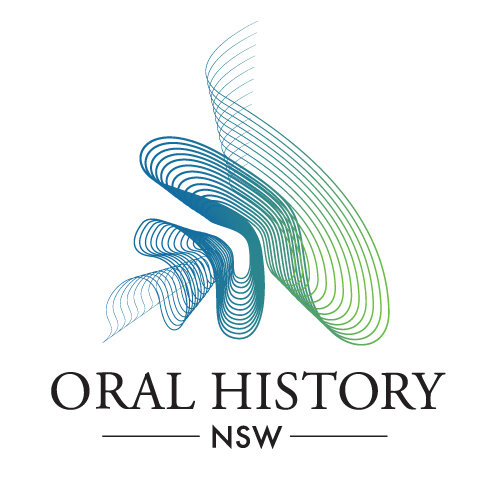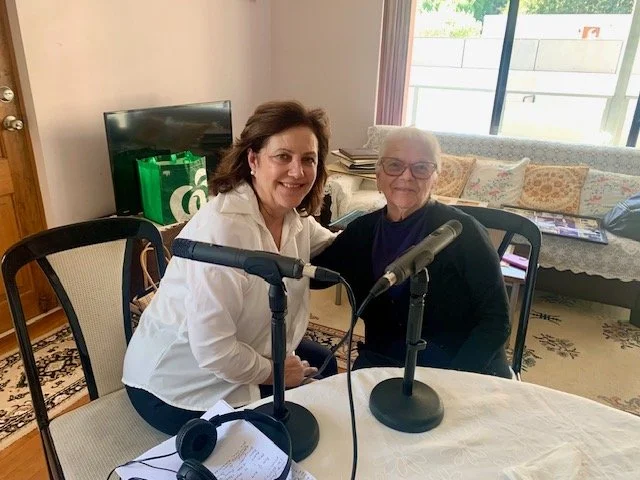PRESERVING LANGUAGE, CULTURE AND IDENTITY THROUGH ORAL HISTORIES
Kathy Kallos is a committee member of Oral History NSW and an oral historian working in english and greek languages.
As a child of first-generation Greek migrants to Australia, I’d been exposed to my parent’s mother tongue since birth. Growing up in the 70’s in Sydney’s inner west, it was the norm to speak Greek at home and compulsory to attend Greek afternoon school several times a week. We were a generation shaped by our cultural background, bearing witness to the challenges our post-World War II migrant parents faced in settling in their new country.
I had the privilege of conducting oral history interviews in both Greek and English for the Greek Australian Archive project, a collaboration involving the University of NSW, the State Library of NSW, the Greek Orthodox community of NSW and the Australian Research Council. The Archive consists of over seventy oral histories with Greek migrants who arrived in Sydney between 1949 and 1972. Excerpts, transcripts and translations are now featured on the State Library website. The personal photographs which accompany the oral histories provide a powerful adjunct to the spoken word.
By virtue of my own cultural and linguistic background, I was able to develop a rapport with my interviewee subjects quickly, enabling a comfortable and trusting relationship. In the pre-interview phase, I met face-to-face with as many interviewees as possible and took the opportunity to look at photographs to engage with the past and to begin the process of storytelling. For some, this was emotionally triggering and needed sensitive handling. Likewise, some interviewees were emotional when recounting difficult and traumatic experiences during the oral history recording and this needed to be dealt with sensitivity and respect. In some cases, I paused the recording deferring to the interviewees wishes.
Interviewees provided detailed accounts of their early years in Greece and what it was like living through the Second World War and the nation’s Civil war. It was deeply moving to listen to the circumstances surrounding their departure and the courage and resilience demonstrated in finding employment, adopting workplace practices and building new lives on the other side of the world.
The recorded narratives provide useful details about the day-to-day challenges of integration, broadening further the existing record of Australia’s migration history. They illustrate how peoples’ experiences are shaped during historical periods in a way that cannot be captured in books or other secondary sources. First-hand accounts are intimate, immediate and powerful.
The preference for many interviewees was to speak in Greek. In telling their stories in the Greek language, many of the interviewees felt they had the scope to express themselves more freely and comfortably. It meant the project team captured significant narratives that otherwise would never have made it into the public domain.
With more than half the interviews conducted in Greek, the archive has preserved a language, replete with accents, regional dialects, linguistic and cultural nuances from the various regions of Greece. The recorded narratives by these first-generation immigrants who’ve brought language onto our shores directly from the country of origin, can only gain further historical, cultural and linguistic value as time moves on.
All languages from culturally and linguistically diverse communities are in danger of falling silent as people grow old and die. Studies by linguists and anthropologists indicate inevitable erosion of language and even eventual extinction. Let’s hope we’re a long way from that! But time is certainly of the essence when it comes to post-war first-generation immigrants!
We need to keep seeking opportunities in our libraries, museums, schools and institutions to preserve the spoken word from all culturally and linguistically diverse communities in Australia, both newly arrived and those more established. More people from CALD communities with lived experience of migration and the appropriate language skills need to be encouraged through government and community networks to engage with the practise of oral history, to preserve language and the rich stories which make up the fabric of Australian society.
- Kathy Kallos, September 2025
Explore more oral histories on the Greek-Australian Archive website - here.

